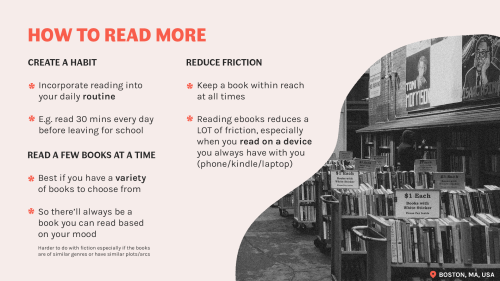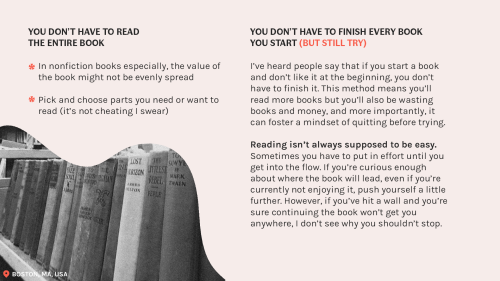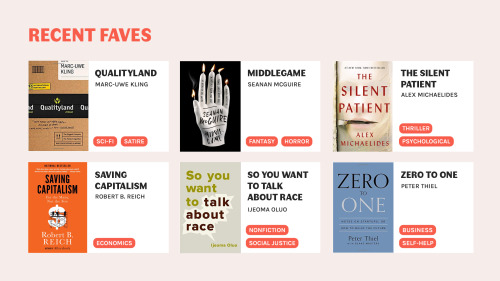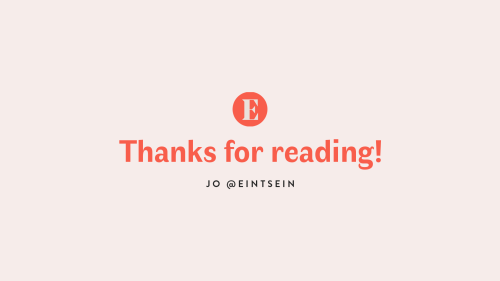Hiya! Just Wanted To Share Some Web Dev Learning Course Videos I Found Really Helpful! They're All Pretty

Hiya! Just wanted to share some Web Dev learning course videos I found really helpful! They're all pretty long and full of content! These videos can be the foundation of your web development journey and be used as a reference! If you do decide to work through the videos, do remember to code along - the best way to learn is by doing and, with programming especially, creating projects as well to apply what you've learned!
Most of the videos, if not at all, cover things like:
HTML5
CSS3
JavaScript
Responsive Design + Mobile design
jQuery
GitHub Tutorials
Tailwind CSS fundamentals
React fundamentals
Node.js
Next.js and more!
Now, onto the videos themselves below!

Web Development Tutorials For Beginners playlist by LearnCode.academy [link] 💻
Covers: HTML5, CSS, JavaScript, GitHub, Responsive Design

Full Course Web Development [22 Hours] | Learn Full Stack Web Development From Scratch by Codedamn [link] 💻
Covers: HTML5, CSS, JavaScript, React, Tailwind CSS, React Query, Node.js, Next.js

Full Stack Web Development for Beginners by FreeCodeCamp.org [link]
Covers: HTML, CSS, JavaScript, Node.js, MongoDB

Introduction To Responsive Web Design by FreeCodeCamp.org [link]
Covers: HTML, CSS, Flexbox, Media Queries

Web Development In 2022 - A Practical Guide by Traversy Media [link]
Covers: HTML, CSS, JavaScript, Sass, PostCSS, TypeScript fundamentals, Testing, Databases, GrapghQL, WordPress, REST APIs, UI kits & Libraries, Moblie Development fundamentals, Web3

Front End Development Full Course 2022 | Front End Development Tutorial For Beginners by Simplilearn [link]
Covers: Git and GitHub, HTML, CSS, JavaScript, ReactJS, Angular

Learn Web Development from Scratch by Edureka [link]
Covers: HTML, CSS, JavaScript, Node.js, Express.js, MongoDB, TypeScript
┌── ⋆⋅☆⋅⋆
Well, that’s all! I hope the videos are helpful!! 😋
Have a nice day/night and happy programming 👍🏾💗
└── ⋆⋅☆⋅⋆
More Posts from Oliviasstudyblrshit and Others
Korean Textbooks Master Post
Hello everyone! Here are some textbooks I had time to scan and upload (marked with an asterisk) or had found somewhere online. I hope you find something here that helps you! This post will be updated as I get more time to scan books, purchase more books, or if I happen to find more books online.
Can’t find the textbook you’re looking for on this list? Please feel free to hit up my ask! I may have it, but just haven’t scanned it yet.
Ewha Korean
Ewha Korean 1-1 Ewha Korean 1-2 Ewha Korean 3-2 Ewha Korean 4 Ewha Korean 5 Ewha Korean 6
KIIP Korean
KIIP Korean 0 KIIP Korean 1 KIIP Korean 2 KIIP Korean 3 KIIP Korean 4 KIIP Korean 5 KIIP Korean 6
Korean Grammar in Use
Korean Grammar in Use Beginner Korean Grammar in Use Intermediate Korean Grammar in Use Advanced
Sejong Korean
Sejong Korean 1 Sejong Korean 2 Sejong Korean 3 Sejong Korean 4 Sejong Korean 5 Sejong Korean 6 Sejong Korean 7 Sejong Korean 8
Sejong Korean Conversation 1 Sejong Korean Conversation 2 Sejong Korean Conversation 3 Sejong Korean Conversation 4
Sogang Korean
Sogang Korean 1A Sogang Korean 1B Sogang Korean 2A Sogang Korean 2B Sogang Korean 3A Sogang Korean 3B
TOPIK
빈도별 토픽 중고급 어휘* 빈도별 토픽 중급 문법* TOPIK Essential Grammar 150 Hot TOPIK 2 Reading
Yonsei Korean
Yonsei Korean Grammar 1-1 Yonsei Korean Grammar 1-2 Yonsei Korean Grammar 2-1 Yonsei Korean Grammar 2-2 Yonsei Korean Grammar 3-1 Yonsei Korean Grammar 3-2 Yonsei Korean Grammar 4-1 Yonsei Korean Grammar 4-2 Yonsei Korean Grammar 5-1 Yonsei Korean Grammar 5-2 Yonsei Korean Grammar 6-1 Yonsei Korean Grammar 6-2
Yonsei Korean Reading 1 Yonsei Korean Reading 2 Yonsei Korean Reading 3 Yonsei Korean Reading 4 Yonsei Korean Reading 5
Miscellaneous:
Korean Stories for Language Learners* TTMIK Real Life Conversations (Intermediate)* Korean Reader for Chinese Characters Korean Slang Expressions Volume 2 Survival Korean
Last updated: 9/12/2019
hello! i'm only starting to learn japanese and i'm finding it hard to know where i should start with the kanji. do you really have to learn kanji separately and memorize both their pronunciations or can you just learn the kanji in the vocabulary?
omg no! don’t stress yourself out like that anon!!
okay, i’m going to be real with the japanese language learning community: you all are doing waaaaaaaay too much when it comes to kanji.
there. i said it.
learning kanji does not have to be a headache!
i spent the first 6 months of my japanese learning “career” (for lack of a better word) trying to figure out the best way to learn kanji because every website and book was like “here’s the kunyomi, here’s the onyomi, now learn them both” but the fine print of that learning method says “you’re going to f*cking struggle”
but then i started realizing that kanji i read all of the time, i didn’t even “properly” study like those articles said. i didn’t know the kunyomi and onyomi for 行 for ages, but i knew it was read いく in 行く and こう in words like 旅行 and 直行. because i learned those words in context and on their own.
a few months after i came to japan, i started asking japanese people how they learned kanji and every single one of them answered the same way: they learn through vocabulary. i once asked my boyfriend how he learned kanji in grade school, and he said that they were basically given a kanji, and then they were given a list of vocabulary that included that kanji. they then memorized the vocabulary and grew to know the kunyomi and onyomi readings.
which, spoiler: kunyomi and onyomi is not always an accurate measure. lots of compounds use the kunyomi, some of them add dakuten (as in ちゅうごく instead of ちゅうこく in 中国), and others add っ (as in ちょっこう instead of ちょこう in 直行). this really isn’t something you can just magically guess.
but it’s important to remember that everyone learns differently. i don’t learn individual kanji – i learn kanji within various vocabulary words. i make sure to get as much exposure to the various ways a single kanji can appear within a larger compound, so 高 is not just a single kanji, but it is 高い and 高校生 and 高価.
i do, however, think it’s important to understand the meaning of a kanji. this can help you decipher the meaning of a word you don’t know yet. for example, 高価 (こうか) means “high price.” 高 means high and 価 means price. knowing their meaning individually can help decipher the meaning.
in this way you can argue that yes, knowing the individual readings of these two kanji makes guessing the reading of this word easier, but 価 can also be read “ke"! you can’t guarantee an accurate reading all of the time, but with more and more exposure to individual kanji, you will be able to tell.
which brings me to my main point: learning kanji is an individual experience. i, personally, think that learning onyomi and kunyomi readings for 2,000+ jouyou kanji is a HUGE WASTE OF TIME, but there are a lot of people out there that do this methodically and know lots and lots of kanji and vocabulary. i, personally, need kanji in a larger vocabulary word in order for it to stick, and my brain just catalogues the various readings away. that’s how my brain works and learns, but it’s not how everyone else works and learns.
it’s important to find what works for you.
that being said, if you’re just starting out i highly recommend Jakka. it’s a website meant for japanese grade school teachers and has tons of grade school kanji material broken up into their appropriate grades. japanese school children are expected to learn and master a certain amount of kanji + vocabulary each grade level, so if you’d really like to learn like a child, learn like the school children do! (the website is in japanese but fairly simple to navigate.)
i hope this helps a little anon! and remember that learning kanji isn’t a race. if it takes you awhile to learn them, don’t worry. everyone learns languages differently.


does my moon look like a moon? 🌝
Study tips that i learned through failures!
1. It's so important that you do a first read thru of the text as fast as possible. Stick to annotations and brief summarizing notes/outlines. Our brain is constantly making connections even when we're sleeping, so even if you don't understand something at first, getting stuck on it is a waste of your present time AND sleep time. Some things will click while you're doing chores because your brain is still working in the background! But it can't happen if there is nothing to click. Try to expose yourself to all the material as early as possible. [If you're studying math, skip the derivations and proofs in the first read thru and just do the example problems and focus on the underlying assumptions. Depending on the class/exam objective, you might not even be tested on the proof]
2. The breaks. Even if you know you can study 4 hours straight - don't. I used to do this especially when I was anxious, but it just burned me out. Even as quickly as the next day! If you're doing your first pom of the day and you feel really fresh to the point that you feel like you can skip that first break - dont.. it will pile up!
3. The water and the sugar!! This might sound really obvious, but studying burns up so many resources. On days I don't study, I might be okay with 60-70 oz of water, but on days I do, it's normal for me to hit 100 oz. I also ate way more food in general and ate more sugar too, and I think that's pretty normal.
4. Flashcards and practice problems > annotations > having nice notes. It kills me to say it, but the last exam I took (and passed!), I relied on my very disorganized notes/screenshots on my tablet. I didn't have time to organize and transfer them nicely onto paper in order even though every perfectionist cell in my body wanted to soo badly. Making your own textbook can be helpful but I seriously just didn't have the time. Focus on what will actually get you that pass score!
5. Find the note-taking app you like BEFORE your study period or exam season and practice using it! The last thing you want is to fight the syncing mechanism as you're trying to study. I like to use Flexil because of the split screen feature, the linked screenshots, and the cross-platform sync. If you are studying math, either learn latex over the summer/off period so you can use it in Obsidian/Anki or commit to manually written flashcards and notes the whole way. Dont try to switch halfway through because that will be a waste of your time. I personally think writing out the math is faster than typing it out in Latex, but it's your poison (they're both poison). (And if you study any type of math, I 10000% recommend using a tablet)
6. Unless you are studying for fun, orient everything around the class/exam objectives. Unfortunately, you're not gonna have time to be curious. If you don't think something will be tested, quickly cut it out and move on.
7. Figure out what your exam taking weaknesses are. Out of every 10 missed problems, I realized I'd miss a question solely because i input the wrong number into the calculator. Now I say the numbers in my head as I put it in, do it at a relatively slow pace, and break up large formulas into itsy pieces and make sure the output is close to what I expect it to be. I write out all the steps on paper sometimes to make sure every calculation is as expected. You only get once chance during the real thing, so it's important to come up with a policy to reduce risk and to stick to it every time.






my masterpost | my studygram | ask me anything
[click images for high quality]
[transcript under the cut]
Other advice posts that may be of interest:
How To Stop Procrastinating
How To Study When You Really Don’t Want To
Unusual Study Tips
How To Do Uni Readings
Active Revision Tips
How to Focus in Online Classes
Keep reading

20|01|2021
some old gcse chemistry notes written on goodnotes on my ipad! this was the first time i ever used it and i remember being so pleased with how they turned out!
Day 51 of My Winter Studying Challenge!
❄️ 20th January - Do you do any winter sports? ❄️
not really because i don’t really do many sports anyway and my country isn’t exactly suited to winter sports








Read More, Read Better
Many of us are looking for more ways to enjoy our time at home in these stressful circumstances. Some of us have turned to books. But how can we make sure we get the most out of them?
Keep reading
Bizarre study tips #32
You know what many top students do differently? They don’t solve all the problems/questions once. They do it again and again.
So now if you have a question set, solve it as many times as possible and you’ll be surprised to find how automated your hand moves during the exam this time!



💚💙
IG: @_akadanie
-
 elfimus liked this · 10 months ago
elfimus liked this · 10 months ago -
 saladballad27 liked this · 11 months ago
saladballad27 liked this · 11 months ago -
 vanagandr2 liked this · 1 year ago
vanagandr2 liked this · 1 year ago -
 galoshes reblogged this · 1 year ago
galoshes reblogged this · 1 year ago -
 minnnloey reblogged this · 1 year ago
minnnloey reblogged this · 1 year ago -
 minnnloey liked this · 1 year ago
minnnloey liked this · 1 year ago -
 oa-trance liked this · 1 year ago
oa-trance liked this · 1 year ago -
 echo-fromafar reblogged this · 1 year ago
echo-fromafar reblogged this · 1 year ago -
 apric-t liked this · 1 year ago
apric-t liked this · 1 year ago -
 canterlottownie liked this · 1 year ago
canterlottownie liked this · 1 year ago -
 xiabablog reblogged this · 1 year ago
xiabablog reblogged this · 1 year ago -
 refs-sideblog reblogged this · 1 year ago
refs-sideblog reblogged this · 1 year ago -
 brain---soup liked this · 1 year ago
brain---soup liked this · 1 year ago -
 violet-roll liked this · 1 year ago
violet-roll liked this · 1 year ago -
 masterofmasterposts reblogged this · 1 year ago
masterofmasterposts reblogged this · 1 year ago -
 lia-life-lounge liked this · 1 year ago
lia-life-lounge liked this · 1 year ago -
 limevines liked this · 1 year ago
limevines liked this · 1 year ago -
 niviferweeps liked this · 1 year ago
niviferweeps liked this · 1 year ago -
 imsoooresourceful reblogged this · 1 year ago
imsoooresourceful reblogged this · 1 year ago -
 saintdreamdoll liked this · 1 year ago
saintdreamdoll liked this · 1 year ago -
 angeluscore reblogged this · 1 year ago
angeluscore reblogged this · 1 year ago -
 angeluscore liked this · 1 year ago
angeluscore liked this · 1 year ago -
 kawaiicodes reblogged this · 1 year ago
kawaiicodes reblogged this · 1 year ago -
 caraisl liked this · 1 year ago
caraisl liked this · 1 year ago -
 zweiihander liked this · 1 year ago
zweiihander liked this · 1 year ago -
 just-hobbit liked this · 1 year ago
just-hobbit liked this · 1 year ago -
 athkar-at1 liked this · 1 year ago
athkar-at1 liked this · 1 year ago -
 serein-sapovnela liked this · 1 year ago
serein-sapovnela liked this · 1 year ago -
 moved-to-hexxedgod liked this · 1 year ago
moved-to-hexxedgod liked this · 1 year ago -
 cashewwentnuts liked this · 1 year ago
cashewwentnuts liked this · 1 year ago -
 theflowerchildworldbegins liked this · 2 years ago
theflowerchildworldbegins liked this · 2 years ago -
 poemgranates reblogged this · 2 years ago
poemgranates reblogged this · 2 years ago -
 strawberriesandmiracles liked this · 2 years ago
strawberriesandmiracles liked this · 2 years ago -
 sadanddeadsoul liked this · 2 years ago
sadanddeadsoul liked this · 2 years ago -
 kewpiiie reblogged this · 2 years ago
kewpiiie reblogged this · 2 years ago -
 kewpiiie liked this · 2 years ago
kewpiiie liked this · 2 years ago -
 liberphilia liked this · 2 years ago
liberphilia liked this · 2 years ago -
 nox-ti liked this · 2 years ago
nox-ti liked this · 2 years ago -
 sta-rina liked this · 2 years ago
sta-rina liked this · 2 years ago -
 ms-rizo liked this · 2 years ago
ms-rizo liked this · 2 years ago




